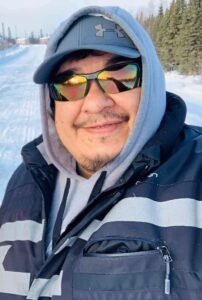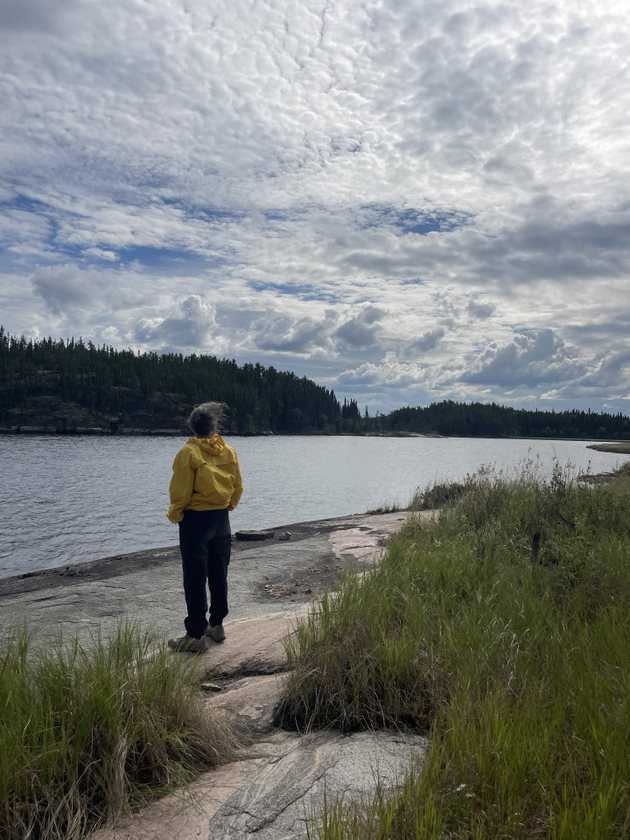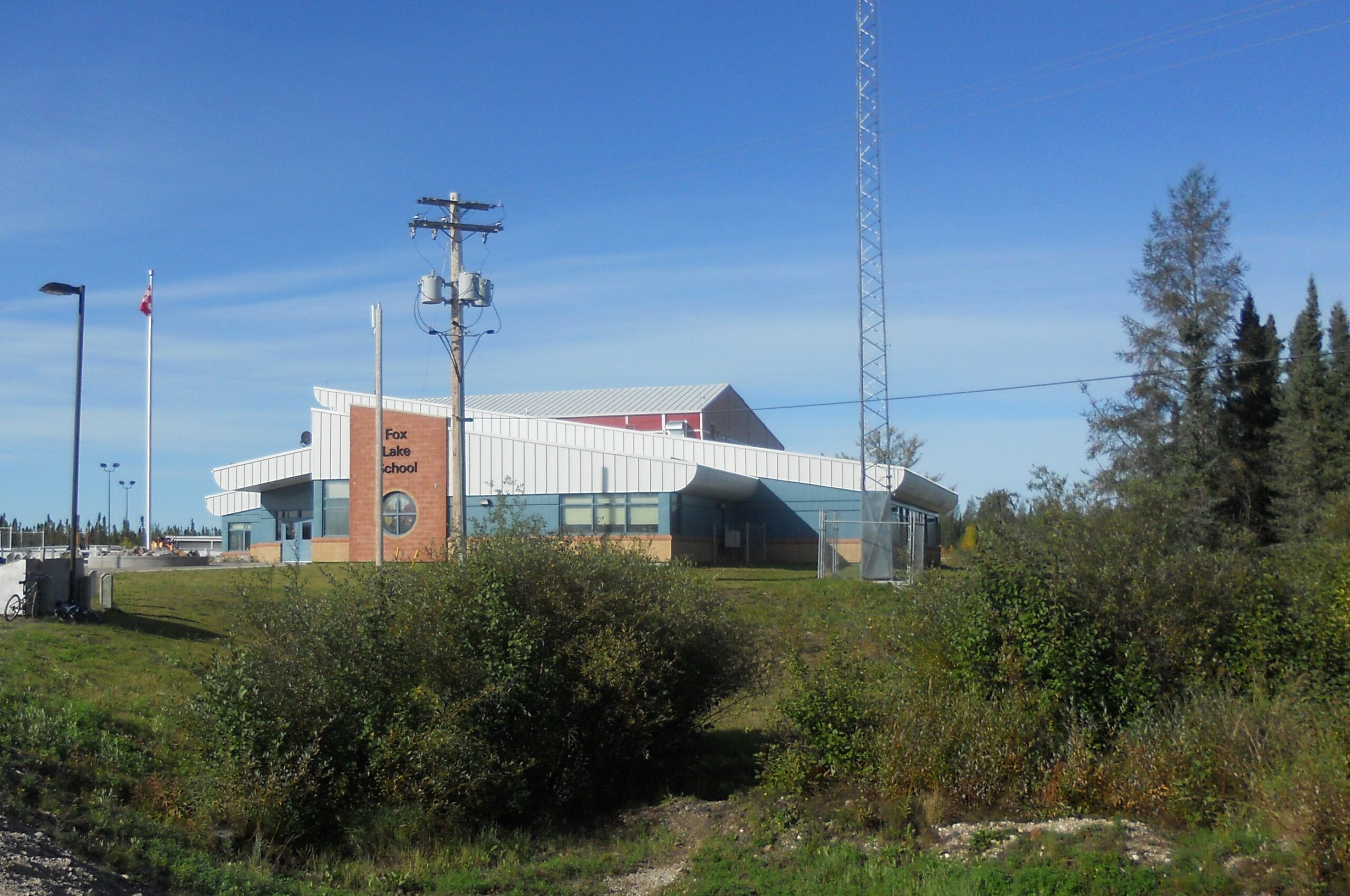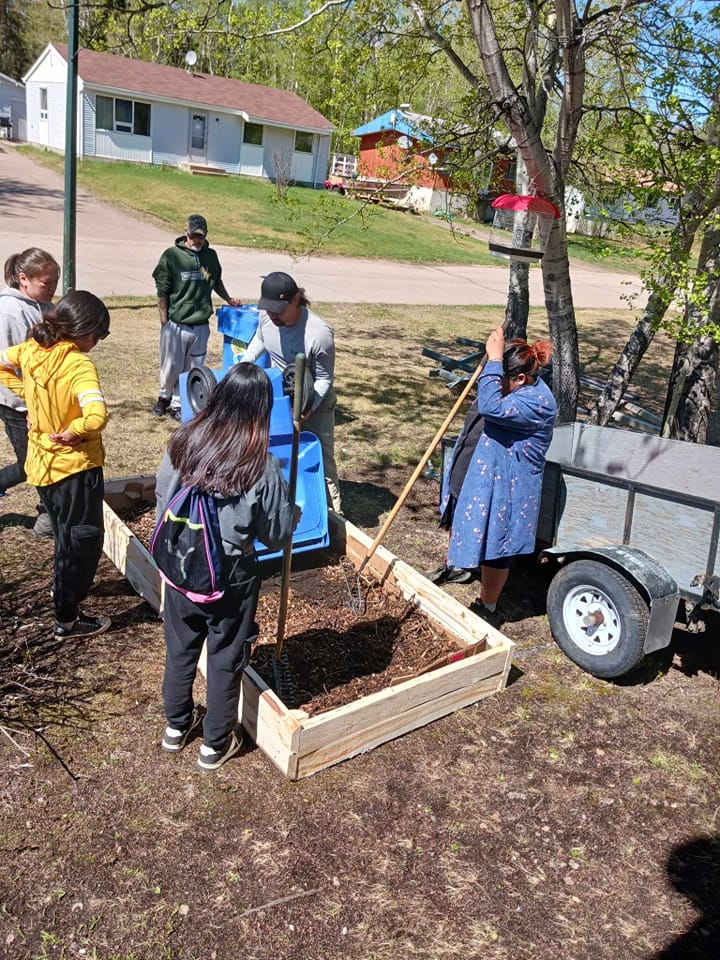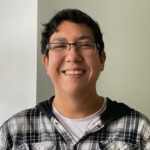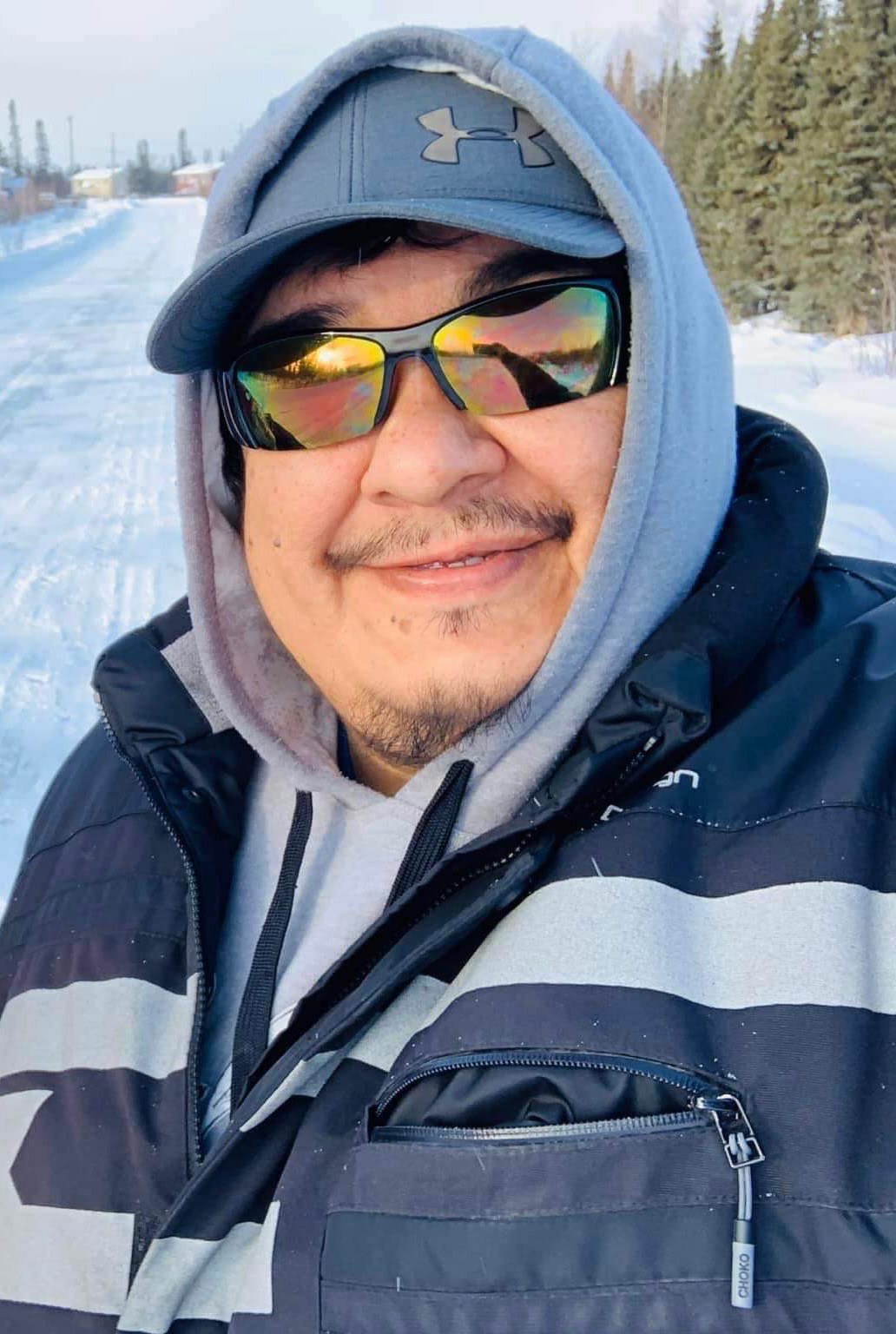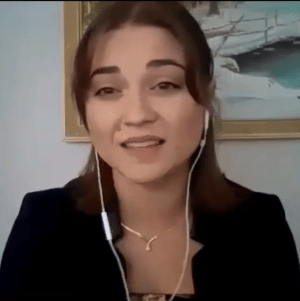We had the chance to discuss with Billy about his work, what it means to him, and those who inspire him to do it daily. He also told us about the connection between food, being on the land, and being connected to his community.
Name: Billy Wavey
Lives: Tataskweyak Cree Nation (Split Lake)
Occupation: Land Based Coordinator at Chief Sam Cook Mahmuwee Education Center
Read our conversation here!
Good morning, my name is Billy Wavey, I am from Tataskweyak Cree Nation.
I’m currently employed with our land based program here in the school. I am the land based coordinator and as a family man, me and my children, we go up to our cabin and practice our hunting lifestyle, fishing lifestyle, and camping lifestyle.
Can you tell us a little more about the things that you do as a land based coordinator at the school?
A lot of our work revolves around the children in our school, taking them out on the land and teaching them the basic stuff of how to make a fire, knowing your sense of direction in a bush, in winter seeking shelters, setting snares and getting them out on the land and going fishing. Last fall I had the opportunity to take out twelve kids in our northern part of the resource management area. We had the opportunity to take them moose hunting in one of our old settlement. We try to get them to see our history, and the history around survival of our food, our meat, our berries.
And in my attempt with Food Matters, we’re trying to do gardening. Unfortunately, it’s a slower process nowadays, but we’re trying to implement everything for our community. In our school we have plants, herbs and spices. Food Matters provided us with a greenhouse in which I’m looking forward to working myself. But out of all the equipment that have been supply for us, we’ve been using fishing nets. We are bringing kids out on the lake. We’re also teaching the kids how to prepare moose, goose, and even rabbit meat. And chicken, we’ve set a chicken coop too. You know, you have to learn to be on the land.
For a lot of our community in the north this was a way of life, survival. What we do for hunting and fishing and trapping, even back when I was a kid, it was a way of life, it was survival. A lot of people, well, even with Food Matters, they bring it back. Last year they took us to Churchill to provide for our community, to bring home the food.
Do you find that when you’re able to harvest and go out on the land it makes a difference in the food accessibility and the food choices that you have for your family, for your community, and for the students that you take out on the land?
When we bring a piece of wild meat to our classroom, kids are amazed by it. They’ve seen pictures of moose, they’ve seen sights of moose, but when we have a piece of meat there, they’re putting their hands in there. You don’t get that from buying a packet of roast beef. You don’t get that satisfaction that you provided for people from the land rather than from the store.
So here in my community, with my kids, we prepare our kills and then we distribute what we’re going to keep and what we’re giving away. Every time. A lot of meat, a lot of anything harvested, gets to anybody who we think might need it or who might ask us for some stuff, we gladly share. And that’s missing a lot from these past few generations.
Another story. As a child I remember people used to gather by the rivers by lake Tataskweyak. I remember people used to go by and meet the person on the boat. He would distribute his food. He would share everything. People from the community would gather around the boat and take their share of moose, fish, whatever was harvested. But that’s kind of how I go about my life and my program as well. We cook in our class, in our building, and whoever want to come and eat, they come and eat.
You have to learn to be on the land; back when I was a kid, it was a way of life, a way of survival.
Do you feel that the connection between food, being connected as a community, and being on the land makes your community stronger? When there’s that communal aspect, when people are sharing a meal together and sharing stories, how do you find it important to connect with your neighbours, friends and family?
I believe it is very important. Even more so now. With what happened with COVID, we were isolated to our home, even though we were sick. It’s a general relief to sit amongst your friends, your family. To share our wonderful food that are our land has provided. Especially when young kids get to sit there with Elders. Even though they don’t understand the language, the young children, that connection is there when they hear Elders talk. I myself, when I was a child, I used to sit there and listen to our language. Our language is important. When they talk about the part of the moose, even right from the berries having their own meanings. You know, all this knowledge from our Elders it’s truly a gift of its own.
Would you say that that is what and who inspired you to do the work that you do?
I’ll say for sure it was my children. Before I had my first son, I barely went out on the land fishing, hunting. When I started becoming a father, I needed to learn, I needed to push myself to be out there more so I could teach them. It is the fact that my grandparents were hunters, fishermen and trappers. That is why I wanted to be a hunter and fisherman. I remember my grandpa leaving in the fall and coming back in the winter to support Christmas: They would trade in their fur so we could have a good Christmas. So in a sense, all these things come because of our Elders. We need to hold on to them as much as we can and pass on the knowledge to future generation.
How old were your kids when you first started bringing them on the land?
My first hunting experience with my son he was six years old. He was out there with me, my grandpa, and my brother. So a lot of the time he wasn’t with me, he was with his great grandfather. He followed him around, he would disappear in the bush… He’d be coming out along following grandpa, at six years old! That’s something I wish I experienced at a young age. Now when I take him to our cabin, he goes prepare the wood, he goes prepare the cabin, he goes and does all that.
Ceremony was taken from us and we have to bring it back one step at a time; maybe some day we will be back to where we were.
Is there a lot of connection between the Ceremonies and Medicine picking that comes through all of the community when you share the food on the land?
Unfortunately, in my area, with my Elders, it’s still sleeping. Going with Demian to Norway House that was my first experience with Medicine picking. But I know for a fact that these Medicines were used here prior to whatever happened, you know, the things that happened to our People.
Colonization?
Yes, all these things. They kind of had to put it aside, they had to try to belong in society. I know Elders talk about that too, they talk about sweet grass… I remember my grandpa used to say that they didn’t have anything to fix a headache, you know they would peel some bark, even back in the day, many years ago, that says something here. But right now I feel like in my community it’s missing.
But it sounds like there is an interest and a need for it to come back.
I believe so. I still hear Elders speak of it because, you know, it was here. People just need people to pick it up and move it forward again.
Just like what you’re doing with the traditional harvesting.
Yeah you know being in those programs gives me and my children the opportunity to go to Churchill, gives me a greenhouse, and some of the supplies that we need for harvesting. This program is much needed. A lot of people are unfortunately left out. Most people don’t have the equipment and the opportunity to get out and all of that.
I’m Forty-four years old and I’m still learning. Never too late to learn how to be out there. I’ve met a lot of friendly people up north that are willing to learn, willing to teach. I’ve met a lot of nice people in my community and out. You know like with Food Matters, Demian invite us to go to his annual summer gathering in Norway House with Gordie Walker. He’s another wonderful gentleman and he has a lot of knowledge to pass on too.
You were saying that medicine picking and Ceremony are still dormant in your community. When you gather with others, does it helps? Is it inspiring?
It is inspiring. With Ceremony and Medicines, me, my wife and my children we’re all Sundancers and into Ceremonies. But in my community, you know there is very few of us. There is a lot of church people in our community. But I don’t feel that there’s anything wrong with that. They have something they believe in that’s giving them peace in their life. I respect that, but in my mind, Ceremony was taken from us.
This is how we have to bring it back one step at a time. Maybe my if my family starts, then another family will jump on. And then maybe another family will jump on too. Someday maybe we’ll be back to where we were. As with the Medicines I feel it’s important too. A lot of my teachings or what I’ve learned basically with Ceremony, it’s come from out of community. A lot people that I follow, I guess you could say, are spread out through Manitoba, spread out through Canada even. They talk about a time when Ceremony was everywhere. But you know, I’m really excited about the future.

